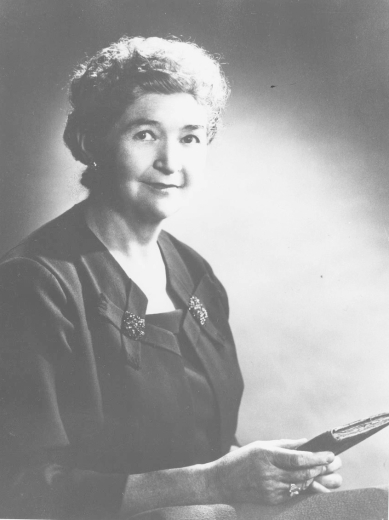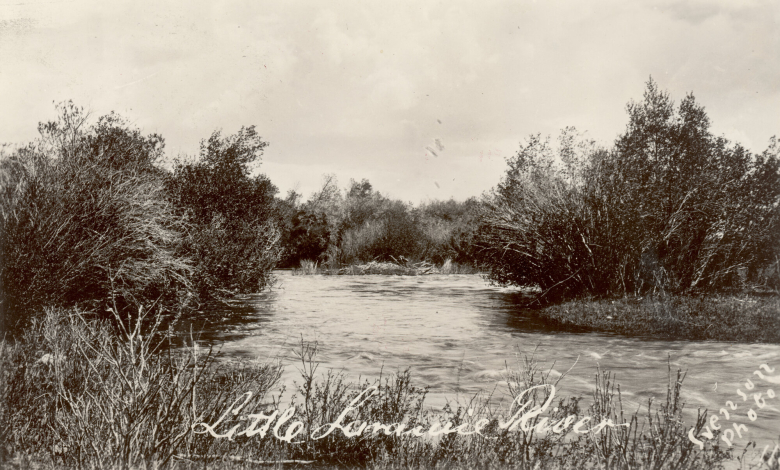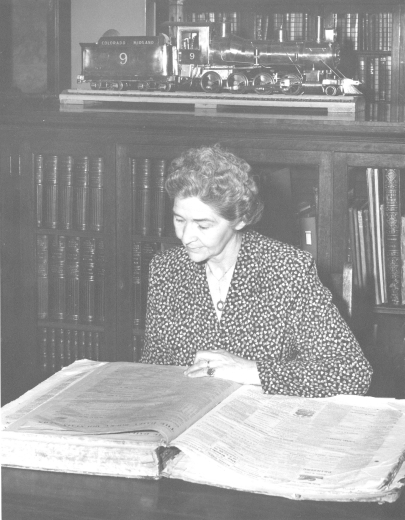Agnes Wright Spring grew up at a time when women were not expected to attend college and have careers but went on to be an author, librarian, and the only person to serve as state historian for two different states.
Agnes Wright was born in Delta, Colorado on January 5, 1894, and, in 1901, moved to Laramie, Wyoming, where her father would own and operate a ranch and stagecoach line. She and her three sisters would find adventures on a 640-acre ranch along the Little Laramie River. Agnes was known as the tomboy of the four. She enjoyed climbing trees, fishing, and helping the blacksmith.
“When I climbed cottonwoods, I always had to climb higher than anyone else. I always wanted to be the best at everything I did, from working the bellows at the blacksmith shop to fishing for trout.” - Denver Post Empire Magazine October 21, 1979
She studied civil engineering at the University of Wyoming but switched to history after finding that being a woman prevented her from obtaining work as a surveyor and map-maker. After graduating, she became an assistant state librarian for the Wyoming Supreme Court library. Eventually, she entered the Pulitzer School of Journalism at Columbia University and intended to stay in New York and work as a reporter until she found that female reporters were paid less than men. After that, she returned to Wyoming, where she would serve as state librarian and state historian.
As early as the 1920s, Agnes was writing articles about women pushing the boundaries of what were considered “women’s jobs” at the time–she wrote about one woman working as a trapper in South Dakota and another working as a guide in the deserts of New Mexico. In 1921, Agnes married Archer T. Spring in Denver and changed her name to Agnes Wright Spring. By 1930, she and Charles had moved to a cherry orchard near Fort Collins, but they lost the orchard during the Great Depression. One of the programs President Roosevelt put in place to get unemployed people back to work was the Federal Writers Project. This program hired writers to go across the country and document local cultures and histories.
During the 1930s, she moved back to Wyoming to serve as director of the Wyoming Federal Writers’ Project and wrote numerous articles and 18 books on a variety of subjects, including the primary author and editor of the Writers’ Project’s definitive guide to Wyoming. After the United States entered World War II in 1941, she started working in an ammunition factory but soon found a job as a research assistant with Denver Public Library’s Western History Department. While she enjoyed looking over old papers and letters, her passion was talking to people who lived through history and shared their experiences with her.
“There is a trend now to consider history a series of beautiful exhibits. But to me, history will always be people and their memories.” - Rocky Mountain News March 24, 1988
In 1954, Dr. Leroy Hafen stepped down as Colorado’s state historian, and Agnes was chosen to replace him. This made her the first person to serve as state historian for two different states. While she officially retired in 1963, she could not bring herself to stop working and continued writing books and articles into the late 1970s. She edited Colorado Magazine for the State Historical Society as well as Wyoming Miscellanies of the Wyoming Wyoming State Historical Society for many years. Agnes was eventually inducted into the National Cowboys Hall of Fame and the National Cowgirls Hall of Fame, respectively. She was the first woman to receive the Distinguished Alumni Award from the University of Wyoming in 1961. Agnes Wright Spring died on March 20, 1988, at the age of 94.
tomboy - A girl who likes to do things that some people think only boys can do
blacksmith - A person who works shaping metal like making knives and horseshoes
Great Depression - A period in the 1920s and 1930s when many people had no money and no jobs
inducted - to be brought into as a member
Why do you think Agnes had the confidence to become so successful at something at a time when many women were not considered for such important jobs?
Do you have certain skills or knowledge that make you confident about your own abilities? What are they?
Why do you think history was so important to Agnes? Is there a subject in school that feels very important to you?




